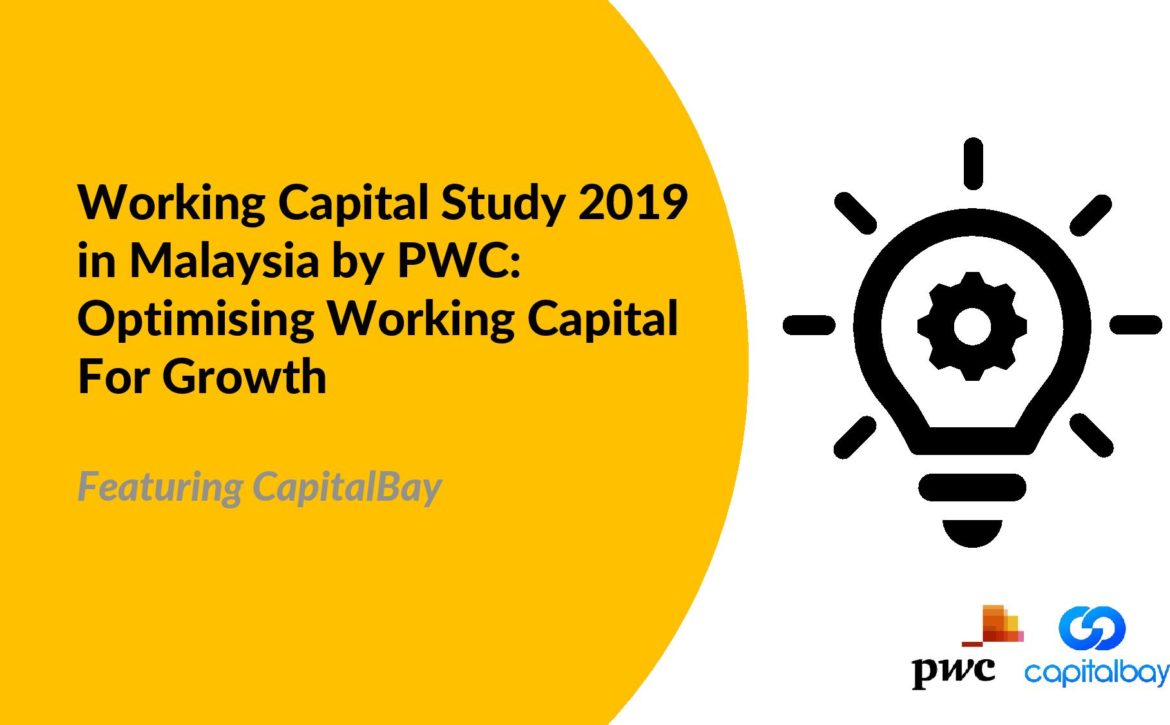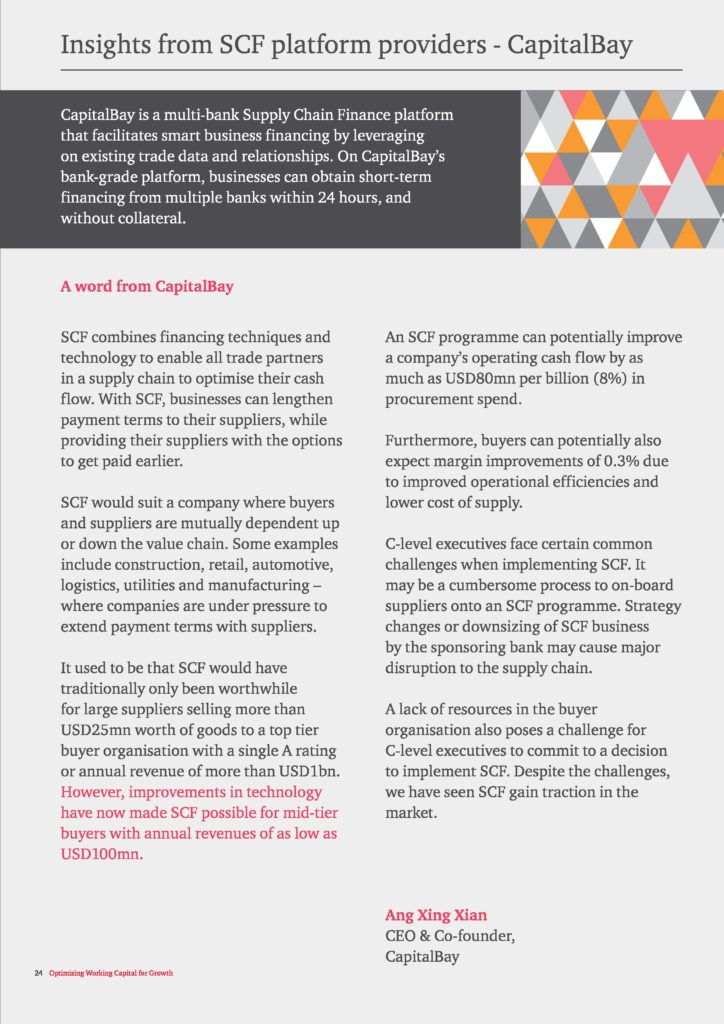11 Ways to Get Your Business Financing Application Approved
Have you ever asked yourself why the financing application for your business has not been approved? The fear of having your financing application rejected is quite real and happens more often than you think. Especially if you don’t know what you are doing wrong. As we are going through an unprecedented time, financing can be crucial to the survival of your business. So, you need to ensure that your application is approved when you apply for a financing facility.
To help you do that, we have asked our CapBay experts to share their insights on what makes a finance provider say yes to a business financing application and what you, as a business owner and an applicant, can do to further improve the visibility of your application. Read on to learn about these insights and how you can adopt them.
1. Bullet-proof financing application
The most common reasons for an application being rejected are insufficient information or a lack of supporting documents. Therefore, to increase your chances of approval, prepare a bullet-proof financing application by setting aside an application checklist, and providing as much detailed documentation of your business as possible. Attach your past and current invoices and completed project details so that finance providers can check the background and history of your company thoroughly. A transparent application with sufficient supporting documents draws a clearer picture of your business to the finance providers. They can understand your company better and learn the intention of your financing request. Thus, increasing your chance of getting approval.
2. Strong credit score
Finance providers always conduct a comprehensive check on the financial health of your company before approving your financing application. Generally, they would check your credit score from credit bureaus like Credit Tip-Off Service (CTOS) to ensure your credibility. The score of your business is evaluated on the following criteria:
- Payment history
- Amount owed
- Length of credit history
- Types of loans or credit cards your business hold
- If you have been approved for any new credit facilities recently
The optimal CTOS score is 697-850. However, this is not a strict measure of your credit evaluation. Each case will be considered on a case-by-case basis to ensure that you are a reliable applicant.
3. Directors with strong credit profiles
Your business may be the one that needs financing but finance providers would also look into the personal details of your company’s directors to get a sense of their integrity and understand how they are running the company. Therefore, if your company’s directors have good personal credit scores, pay their loan facilities, and credit card installments on time, your business will be more creditworthy for finance providers to approve your financing application.
4. Big corporations as clients
If you have a long list of reputable clients that are from big corporations such as Government-linked Companies (GLCs), Public Limited Companies (PLCs), and Multinational Companies (MNCs), then your profile will stand out to the finance providers. Reputable clients give finance providers the confidence that you have big clients at hand who are less likely to default on payments, which means you will receive your payments on time and this often translates to having a healthy business cash flow to repay your debts on time.
5. Buyers with a low-risk profile
Finance providers assess the risk profile of your buyers to ensure whether they will be paying on time because if you don’t get paid on time, it would create difficulties for you to pay the finance providers on time. Usually, finance providers would cross-check your Aging Statements with your Bank Statement’s transactions to understand the creditworthiness of your buyers. If you receive your payments on time, you will be considered as having buyers with a low-risk profile. As a result, your chance of getting approved for funding will also be higher.
6. Constructive business plan for growth
The intention of your financing application is the key to getting it approved. If you need financing to implement your expansion plan or increase your business productivity, finance providers will be more inclined to approve your application. However, if you only intend to use the funding to cover overdue debts or past financial decisions that have incurred consistent losses, chances of your application getting rejected will be high. CapBay is known for continuously helping thriving SMEs to contribute to the economic growth of the country. So, if you are a promising business with plans for further development, you can check our financing services to get funding to grow.
7. Prompt and consistent debt repayments
Having a record of consistent and prompt debt repayments means you are a trustworthy applicant who would pay on time. This will help your application to have a higher chance of approval.
8. A healthy operating cash flow
It is okay if you are running low on cash but you need to have more cash inflow than cash outflow in your business. For example, if your company is experiencing low sales but still has positive cash flow and you are seeking finance to increase your sales or expand your business, the likelihood of your application getting approved is high. However, if you have an overwhelming amount of operating expenses and you are looking for funding just to cover your debts, finance providers may hesitate to fund you as your business will have a higher chance to default on debt repayments in the future.
Read more on 12 Ways to Improve your Cashflow Cycle in 2020
9. Optimal debt level
You should always maintain a healthy balance between your debt and equity to finance your business. A good debt ratio means your business is more likely to generate enough cash flow to repay your debts. Finance providers prefer business profiles that maintain a benchmark debt ratio of 40% or less. Also, never overfund your business needs because finance providers will vet your company before approving your application. If they evaluate that you are requesting for funds beyond your business needs, they may not approve your financing application.
10. Audited financial statements
Providing audited financial statements reflect your credibility to the finance providers. It ensures that your financial statements give a true and fair view of your business. This makes it easier for finance providers to analyze the financial condition of your business and helps to speed up your application process with higher chances of approval.
11. Transparent communication with the finance providers
Having an open and transparent conversation with finance providers can make things easier for both parties and speed up your application process. Plus, take prompt action on providing additional documents to fast-track your application and increase your chances of approval.
These 11 tips will provide you a good sense of how the finance providers review your business financing applications. So, the next time you apply for a business financing facility, these 11 simple tips can definitely help your application shine. And, if you are looking for advice to better understand your business financing needs, you can always reach out to CapBay’s Funding Specialists. In times of uncertainties, CapBay supports you.





















